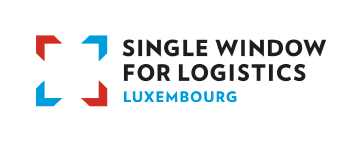Definition
Dual-use goods are products, including software and technologies, whose use may be civilian as well as military. These are sensitive goods normally intended for civilian purposes that can be used for military purposes or that could noticeably strengthen the military capacity of the countries that acquire them.
They include all goods that can both be used for non-explosive purposes or be used in any way in manufacturing nuclear weapons or other explosive nuclear devices.
These goods and technologies are defined in a list attached to a European regulation, that specifies the international agreements on the control of dual-use goods.
For Example:
- a computer or software application with a certain capacity, an electronic or mechanical component can be used in manufacturing technological equipment or missiles
- a viral strain that exists in a natural state (Ebola, etc.) can be used for medical research but also can be used as a biological weapon
- a chemical product sold in large quantities can be used for an industrial purpose or to manufacture chemical weapons
- a machine tool or piece of equipment can be used in traditional industry or may be used in the nuclear area.
Obligations and controls
The trade of these goods and technologies is not a priori prohibited but is subject to controls by the Control office for exports, imports and transit of the Ministry of the Economy upon export and during their transit through the European Union (EU) in order to fight against the proliferation of weapons.
Operators and exporters must check whether their goods are on the list of dual-use goods and, if this is the case, apply to the Control Office for an individual authorization for a specific recipient or else a general authorization for one or more recipients and/or destinations.
Some goods not shown on the list are also subject to authorization when the exporter has been informed by the authority of the exporting country that these goods are or may be intended, in all or in part:
- to contribute to the development, production, handling, functioning, maintenance, storage, detection, identification or distribution of chemical, biological or nuclear weapons or other explosive nuclear devices or for the development, production, maintenance or storage of missiles that can use to deliver such weapons
- for a final military use, when the purchasing country or destination is subject to an embargo
- to be used as parts or components of military products appearing on the national list of war equipment that have been exported from the territory of the Member State in question without the authorization specified by the national legislation of this Member State, or in violation of such an authorization.
When the exporter has knowledge of a dual-use good, not registered on the list or used for one of these purposes, they must inform the Control office for exports, imports and transit that will make a decision on whether the export requires authorization.
Note: for some goods and some destination countries mentioned in an appendix to the European regulation, exporters must apply for a general community export authorization.
Related documents
To export dual-use goods or transfer dual-use technologies to third countries, an export authorization is needed.
To move them between two countries of the European Union following an import or in view of an export, a transit authorizaton is needed.
Countries of the EU may offer services for assistance in trading or organizing transactions for the purchase, sale, or supply of dual-use goods from a third country to another third country, also called brokering services: in this case, a brokering authorization is necessary.
Note: The transit of dual-use goods and technologies originating from or being sent to Belgium and the Netherlands does not require an authorization.
Related procedures
Dual-use goods are subject to the following procedures described on the Guichet.lu website:
- application for an export authorization for dual-use goods
- application for a transit authorization for defense-related products
- application for a transit authorization for dual-use goods
- application for a brokering authorization for dual-use goods.
Related Organizations
The export and transit of dual-use goods falls under the responsibility of the Control office for exports, imports and transit of the Ministry of the Economy.


